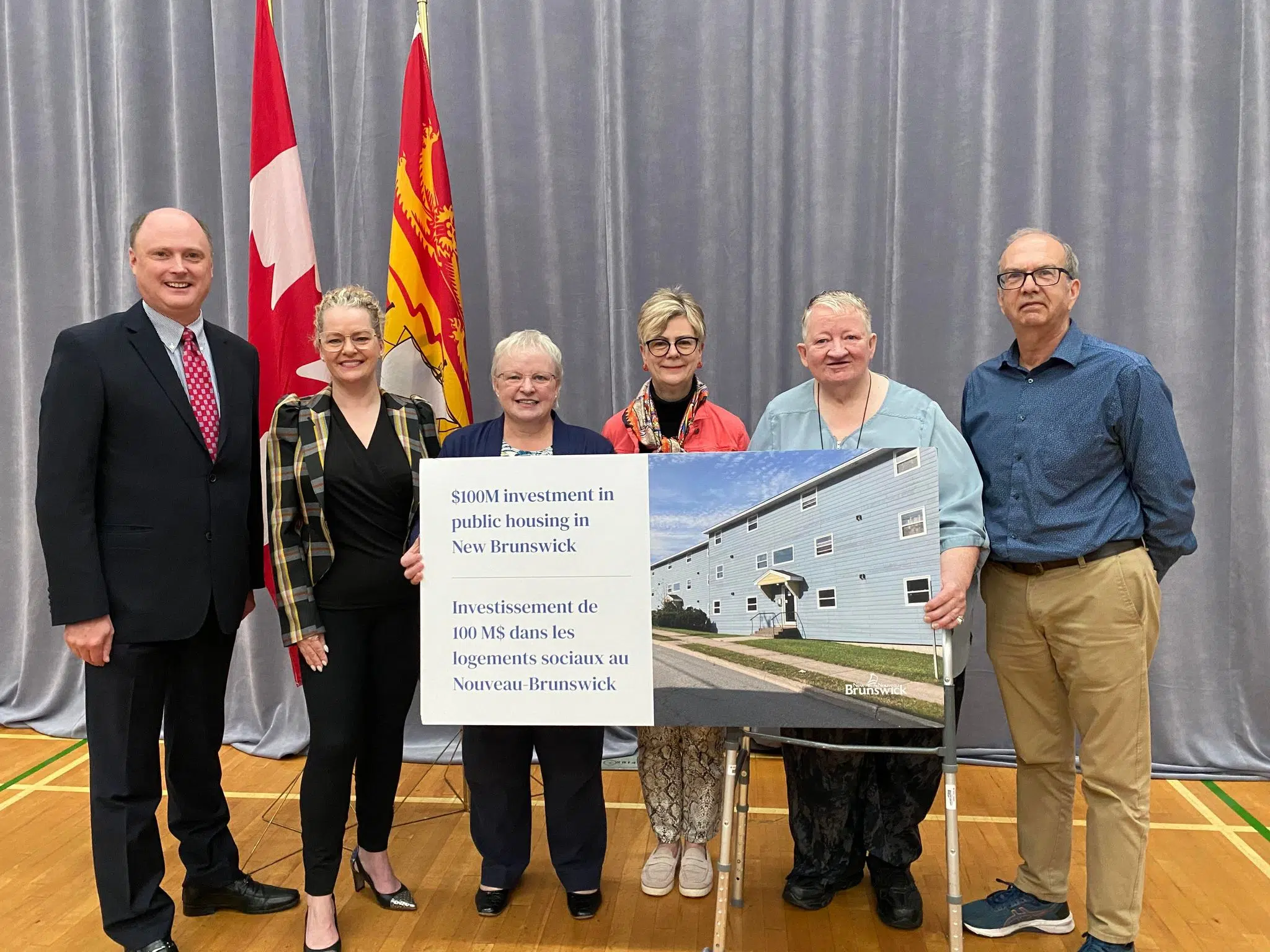It is being called the largest capital renovation and replacement plan for public housing in decades.
New Brunswick will spend $100 million over the next four years to build 380 new public housing units.
An additional $2.2 million has been set aside this year for immediate renovations to 110 vacant units.
Social Development Minister Dorothy Shephard made the announcement in Saint John on Monday morning.
Shephard was joined by several community representatives at the Carleton Community Centre on the city’s west side.
Saint John, Moncton, and Fredericton will each get 40 new units, 68 units will be built in northern regions of the province, and 192 units will be added “in areas of greatest need.”
The Department of Social Development currently owns and operates 3,800 units in 808 public housing buildings across the province.
Most of the units were built in the 1970s and the average age is 52 years old, according to a news release from the province.
Shephard said there is a need to find housing that is not just for those who are low-income, but for the working poor and middle-income earners.
“Here in Saint John, 45 per cent of our population are renters and that’s significant. We’re the highest I think in the province or pretty darn close. We need to make sure there is housing available at all affordable levels and I believe that will be the initiative,” Shephard said.
Will it be enough?
Shephard said she doesn’t believe there is a ‘silver bullet solution to all of New Brunswick’s housing challenges.
“We still have many housing projects coming up through the bilateral agreement and with our non-profit and for-profit sectors that are happening. Those announcements will be coming soon as well. We’ve got another 1,000 units in that bilateral agreement that have to be done over the next seven years and 400 over the next three [years],” Shephard said.
She also mentioned the federal housing benefit.
“That’s another way to transition people into higher income brackets while they are getting their education, to support them through so they can take that housing benefit anywhere they want, to any housing unit they want,” Shephard said.
The waitlist for N.B. Housing has 8,700 people on it. According to Shephard, that number includes about 3,700 individuals who are not seniors.
Anti-poverty advocate Juanita Black attended the announcement. She is a Social Development client and a long-time public housing resident.
Black said Monday’s announcement will shorten the waitlist and relieve the anxiety who those who do not have a decent place to live.
She made a request to Shephard and Saint John Mayor Donna Reardon as to the location of the new units.
“Put them in a place that’s not way over here by itself. That makes it, ‘Oh, there’s them people.’ Put them right in the middle of the units. Let them all work together,” Black said.
Randy Hatfield of the Human Development Council said Monday’s announcement is a lot of money so it has to make a difference.
“Affordable housing is incredibly complex,” said Hatfield.
Hatfield said it brings in a whole bunch of considerations that are connected.
He noted the many pressures on creating affordable housing including the financialization of housing stock.
“Increased Airbnb numbers, rising interest rates, group tenancy rights and protections in this province, inflation, supply chain and skilled labour force,” Hatfield said.
Hatfield called it a “solid announcement” in terms of the province getting back to being a landlord and creating units.
He echoed similar concerns as Shephard about the many people who are struggling, including non-elderly or working-age singles.
“[They] haven’t aged out yet for OAS [old age security] and GIS [guaranteed income supplement], but they are getting by on social assistance rates of $571 a month,” Hatfield said.
The province of New Brunswick will invest more than $100 million to construct & renovate public housing units. pic.twitter.com/9ww8kPZwUf
— Tamara Steele (@tamarasteele1) October 17, 2022






Comments